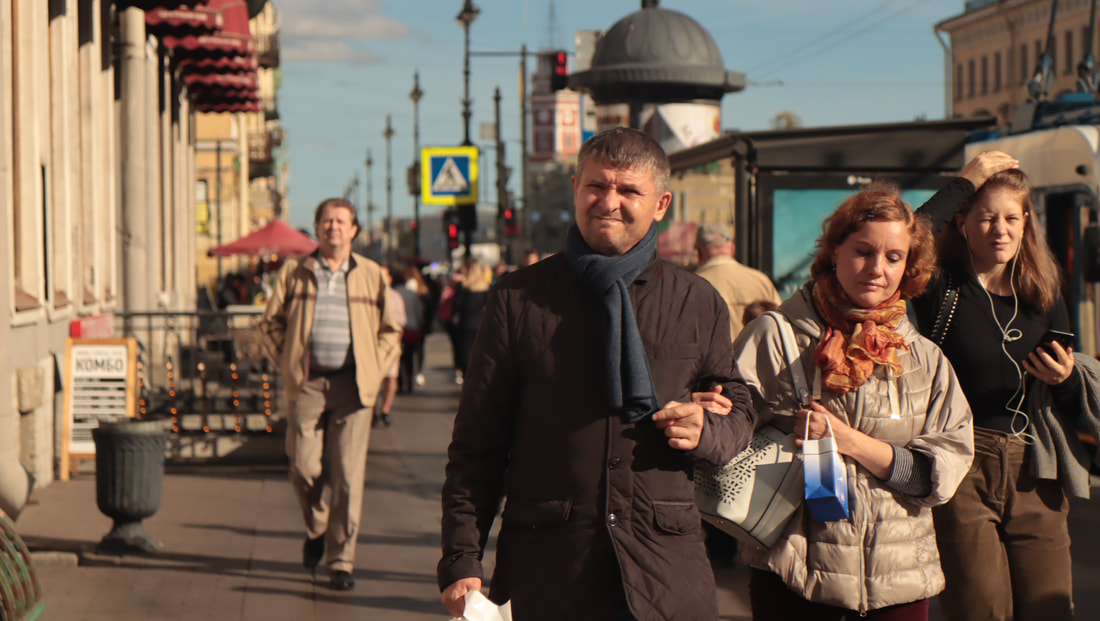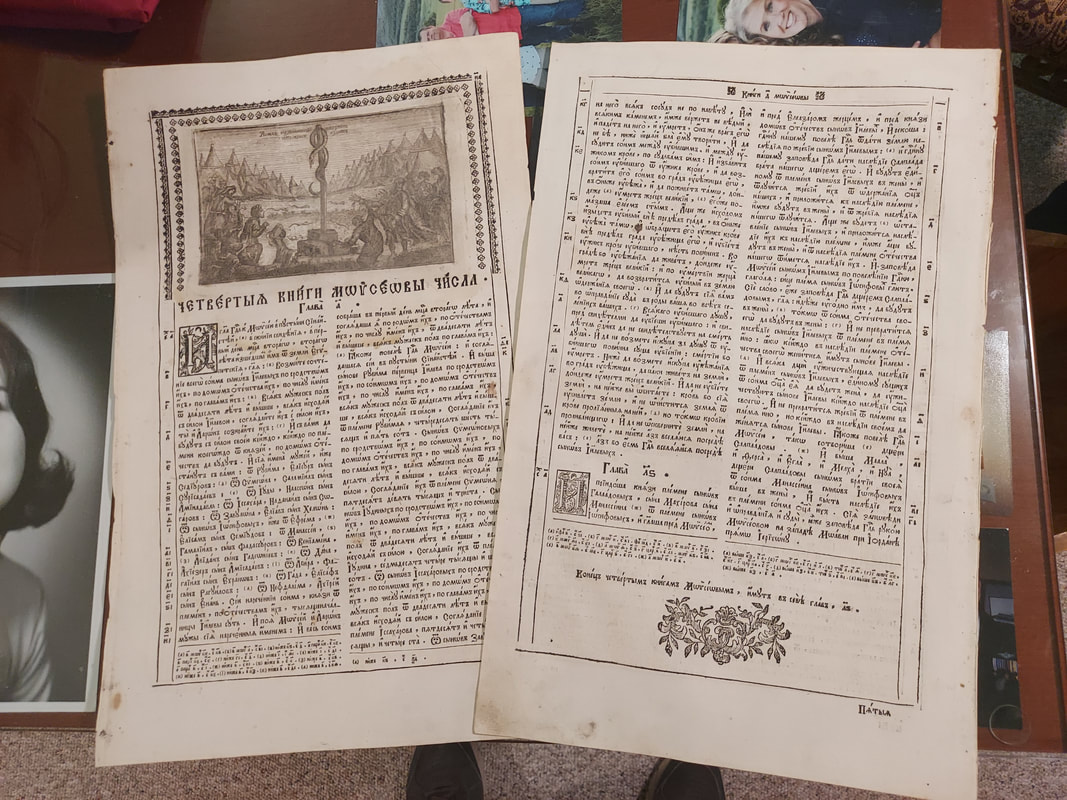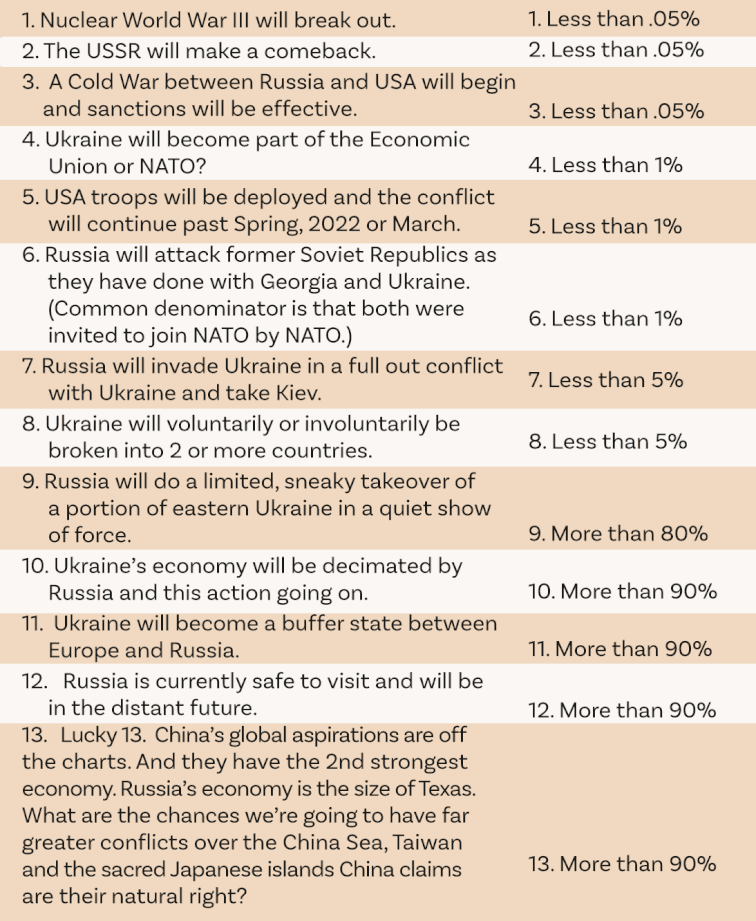|
Like you, we’ve been carefully following the news as well as speaking to our friends in Russia. We are heart sick at the actions of Putin toward Ukraine. We grieve for Boris Leostrin and the saints in Russia. They didn’t want this invasion. We grieve for the Ukrainian people and saints. We have many friends there.
We are taking the next two to three weeks to carefully check with sources inside both countries as well as European and USA sources to try and determine our course of action. International airlines, and other travel as well as international monetary exchanges are being affected and we need to know to what extent we will be affected. Of course, we will do nothing that would endanger our guests travelling with us on our Heart of Russia Cruises. Rather than speculate now, give us until the end of March to see the degree of certainty with which we can make plans. You are upper most in our minds. We will be back to you soon with a more definitive plan for Heart of Russia Cruises.
0 Comments
Dazed and deluded:
Putin launches invasion of Ukraine Russian society reels Most Russians are keeping their opinions to themselves after the invasion of Ukraine. This article has been republished from RFE/RL. by Robert Coalson Feb 25, 2022 Russians awoke on the morning of February 24, like the rest of the world, to news that their country had invaded Ukraine, a neighbouring country to which millions of Russians have close personal ties. The developments came after months of military build-up during which Russian society largely maintained a silence driven by disbelief and edged with fear of reprisals from President Vladimir Putin’s government, which has intensified its clampdown on dissent and civil society over the past year. “I am against any war, particularly with Ukraine,” one man in the southern city of Rostov-on-Don told Current Time on February 24 when asked about Putin’s decision. “I can’t judge because I wasn’t there, but they should have done everything possible to maintain the peace.” A woman in the same city said she “views war negatively in general.” “But since they have forced us, I think our president is doing everything correctly,” she added, before turning to the journalist and adding: “Is that what you wanted to hear?” A retired woman in the city of Cheboksary, the capital of the Chuvashia region on the Volga River, told RFE/RL’s Idel.Realities: “We are very sad. It is really frightening. We feel sorry for everyone.” Another Chuvash woman said she was “against war” and criticized Putin’s government, which had repeatedly said Moscow had no plans to invade Ukraine and had mocked the United States for warning that Russia was planning a large-scale attack. “They sit around and make decisions, but our boys have to go off to fight,” she said. “They talked and talked and promised and promised that there would be no war. Now there is only disappointment.” Both women declined to give their names. Shortly before the invasion began, sociologist Aleksei Levinson of the independent Levada Center polling agency told Current Time that public opinion in Russia was dominated by a “fear of war” that nonetheless did not rise to the level of “anti-war sentiment.” (Current Time is the Russian-language network run by RFE/RL in cooperation with VOA.) “We are not seeing public manifestations of anti-war sentiment in Russia,” he said. “There aren’t really demonstrations or anything like that. There are individual statements on social media, but they are coming primarily from those social groups you’d expect to see them from — the liberal intelligentsia on Facebook and so on.” He added that many Russians were convinced a war against Ukraine would be brief and not involve large numbers of casualties. “They aren’t afraid of a war because they think it will not be fought on Russian territory,” he said. “So far, they are not thinking [the war on Ukraine] will be accompanied by massive losses.” An opinion poll by the state-connected All-Russia Center for the Study of Public Opinion (VTsIOM) released on February 23 found that three-quarters of Russians supported Putin’s decision to recognize the separatist entities in parts of eastern Ukraine, while nearly four-fifths backed his decision to sign cooperation agreements with them — both steps that were milestones on the road to war. Nonetheless, on February 24, small demonstrations against the war took place in cities across Russia. “I came out today because I don’t want to be part of an aggressor country,” Dmitry Grunin, a member of the Omsk Civic Union, told RFE/RL’s Siberia. Realities at a demonstration in his Siberian home city. “I want to live in a normal country, one that is peaceful and oriented toward the future.” In Saratov, lawyer Denis Rudenko stood alone amid the snowdrifts holding a sign reading: “Putin is a war criminal.” Moscow-based journalist and activist Marina Litvinovich issued a call for mass protests across Russia in the evening, trying to muster enthusiasm for “Russians against the war.” “I know that now many of you are experiencing feelings of despair and helplessness over Vladimir Putin’s attack against a people that is friendly toward us,” she said in a video statement. “But I call on you not to despair and urge you tonight, at 7 p.m., to come out onto the main squares of your city to clearly state that we, the people of Russia, are against this war that Putin has created…. Don’t be afraid.” It was one of the few calls for mass protests that have been heard in Russia, even as the country proceeded toward this turn of events for several months. Shortly after she posted the video, Litvinovich was detained by police outside her home. In an interview with Russia-focused media outlet Meduza, Levada Center Director Denis Volkov said the Kremlin has skilfully convinced many Russians that the conflict at the heart of Russian aggression against Ukraine was not between Russia and Ukraine but between Russia and the United States. “America is to blame for everything,” he said, paraphrasing a narrative that has been laid out by officials and state media. “It isn’t even Ukraine, but America and the West. They are pushing Ukraine, which is plotting something against [the Russia-backed separatists], and Russia has to come to their aid because they are Russian-speakers and, in a nutshell, ‘our’ people.” A CNN poll released on February 23 found that 50 percent of Russians agreed it would be acceptable to use military force in Ukraine “to prevent Kyiv from joining” NATO, while just 25 percent said it would be wrong. In addition, Russian civil society is far different from what it was in 2008, when Russia fought a brief war with Georgia or in 2014 when Moscow seized the Ukrainian region of Crimea and fomented the separatist war in parts of eastern Ukraine. In 2014, tens of thousands of Russians took to the streets in major demonstrations in March and September against Moscow’s aggression against Ukraine. Those protests were led by charismatic opposition leaders such as Boris Nemtsov — who was shot dead outside the Kremlin in February 2015 — and Aleksei Navalny, who was arrested in January 2021 after recovering from an assassination attempt the previous year and who is now serving a 2½-year prison sentence on charges his supporters say were politically motivated. In addition, independent media outlets and civic organizations have been cowed or shuttered under Russia’s draconian “foreign agent” and “undesirable organization” laws. Individual activists and journalists — many of them targeted by dubious criminal investigations — have been intimidated or driven to leave the country. Analysts have noted that Russian search engines now ignore the reporting of media outlets that have been targeted by the government. On February 24, the state media-monitoring agency Roskomnadzor ordered Russian media covering the war to report “only information and facts received from official Russian sources” under threat of being fined or blocked. “For the Russian people, any form of anti-war rhetoric right now means to risk, at the very least, losing your job,” Moscow-based journalist Kirill Martynov told Current Time before the invasion. “Worse, it could mean risking your freedom or your life.” “At present, there is not a critical mass of people in Russian society who would be willing to risk that,” he concluded. Russian political analyst Fyodor Krashennikov told RFE/RL’s NorthRealities that it is wrong to argue that Russians do not protest enough without taking into consideration the “terror” that dominates in Putin’s Russia. “It is completely logical that people don’t want to go out and protest,” he said. “[I]n Belarus, brave and respectable people also don’t protest anymore for the same reason. To deny the effect of terror and blame people who are in such a situation is a betrayal, in my opinion.” On social media, many liberal Russians have been sharing their angst. “It is too late to put up flyers and too late for one-person pickets,” wrote Moscow-based journalist Varya Gornostayeva. “Our country must save itself, defend itself from this madman who will bury us all under rubble. And we must defend Ukraine, where our friends, relatives, and people who we have never considered enemies are living. We have one enemy — Putin.” “We, Russians, Russia will never wash away this shame,” wrote Moscow-based activist Valery Solovei. “This fateful decision has been made in accordance with our silent lack of resistance.” Copyright (c)2020 RFE/RL, Inc. Reprinted with the permission of Radio Free Europe/Radio Liberty, 1201 Connecticut Ave NW, Ste 400, Washington DC 20036. Robert CoalsonRobert Coalson is a senior correspondent for RFE/RL who covers Russia, the Balkans, and Eastern Europe. More by Robert Coalson 18 Air Travel Tips
from Mark J. Stoddard My first flight was as a child returning with my family from an Air Force tour of duty in Germany. The plane was a TWA Constellation propellor plane. Since then my wife Elizabeth and my brother Eric have garnered too many seat callous and taken more than 30,000 friends as passengers on our cruises and tours in the USSR, Russia, Ukraine, China, all over the Pacific rim and islands, Australia/New Zealand, Central and South America, so many African and Middle East countries, India and "IndoChina" as well as Europe. So...we ought to share our findings on how to enjoy or survive flying on today's airlines.
view Church leaders in a country where the restored Gospel is struggling to gain a foothold have great challenges helping new members find a way to inculcate the gospel into everyday lives of converts by keeping them involved in helping the Church grow.
Such is the challenge President Boris Leostrin faces daily in leading the St. Petersburg Stake of the Church of Jesus Christ of Latter-day Saints. But, don’t take my word for it. Ask him. On February 16, at 7 PM MST, a special Meridian Zoom cast was held with President Leostrin, and you can view it by clicking on the image below.  So What Is Up With Ukraine and Russia and How Will It Affect Our Russia cruises By Mark Stoddard A Risk Assessment of the Russia/Ukraine Conflict  In predicting geo-political events it’s more fun and reasonable to predict the winner of the Super Bowl. Less stress. But we’re in the international cruise business and our first concern is how international events will affect our customers. With the Ukraine vs. Russia conflict, we study everything we can to understand. In that we’ve had a hands-on approach to Russia and Ukraine that began while they were part of the Soviet Union, we have some perspective and ability to ask questions. Answers, on the other hand, are transitory -- ever changing. Rather than exact answers, we've listed below extrapolations that lead us to conclude, temporarily, the percent chance of something happening. What follows is our best extrapolation of how key questions regarding Russia and Ukraine and the USA. Understand our point of view on these seven (7) subjects first: 1. Ukraine is a sovereign country and must remain so. However, it is terribly divided between Ukrainian speakers in the middle and northwest of the country, and Russian speakers in the far east and southern part of the country. It is unstable and has a history of corruption – all the hullabaloo over Trump collusion with Russia and Biden and his son over Ukrainian influence is caught up in this. 2. The USA official position since 2008 is to side with the NATO countries that Ukraine and Georgia should be invited to join NATO. 3. Russia considers NATO as much a national security threat as the USA did when the USSR put missiles in Cuba. We had the Monroe Doctrine and Russia has a “Ukraine Doctrine” when it comes to national security. 4. Crimea is now in Russia and is not going back. The USA political philosophy of people having the right to self-determination is fundamental to what Russians living in Crimea and eastern Ukraine believe. Tough to argue against that. The border of Ukraine, while ancient, was irrelevant during the Soviet Union and people lived in Donetsk, Ukraine considered themselves Russians and spoke then and speak now, Russian. 5. The USA views the world through three lens: 1) Economic lens, 2) Philosophical lens, and 3) National Security/Military lens. Ukraine is of no importance to the USA economically or in terms of national security. We are concerned over the philosophy of democracy expanding (as we should), but that runs into quagmires when self-determination is thrown in. 6. 21st Century Mentality. While so many in the USA in power (all parties), keep thinking the world is made up of wiser people unconcerned with borders and all the messiness associated with nationalities, the majority of the world is still vitally concerned. Japan wants to be Japan. Mexico is Mexico first, and second. Germany has no sense of humor and never will. Few countries think we can all have a group hug and sing Kumbaya together. People consider their security first and economies second. Countries do the same. Their self-interests are of prime importance. 7. Profound Sanctions or those of Pablum Proportions. President Biden and others have thrown the threat of “severe sanctions” into the equations. Severe Sanctions could devastate Russia’s problematic economy, but what would they be? 1) SWIFT rejection. Russia could easily be prevented from using the Society for Worldwide Interbank Financial Telecommunication swiftly, but hold on. Germany blocked that option and then said everything was on the table. Germany is a wild card. 2) Freeze moving forward on the nearly finished Nord Stream, the “system of offshore natural gas pipelines in Europe, running under the Baltic Sea from Russia to Germany.” Key word is Germany. And blocking that is strictly verboten, although German Chancellor Olaf Scholz recently said a Russian invasion could cripple the pipeline! REMEMBER: At least 1/3rd of Germany’s oil and natural gas comes from Russia. Our president blocked our pipelines that would have allowed the USA’s oil and gas producers to easily fill the shortfall, but not now. In fact, the $88 per barrel price of petroleum is fueling Russia’s Ukrainian takeover efforts. Don’t look for sanctions to be meaningful. That said, what are the chances of the following things happening in Ukraine and the world? Here are our best projections:  Be sure to watch this video from Political Science professor, Dr. John Mearsheimer given in 2016. His analysis has held up quite well. https://www.youtube.com/watch?v=JrMiSQAGOS4&t=3004s  NOTE from Eric Stoddard: No guarantees. But we’re holding our cruises in Russia because we have no reasonable fears that we’ll have safety problems for our customers. We plan to have 10 post-Covid great cruises in 2023 so we MUST have a great cruise on August 19-Sept. 1, 2022. All aboard! '  P.S. from Elizabeth Stoddard: At first glance this might be the worst possible year to go to Russia on a cruise… or to re-start our Russia Cruise company. But this is the year to see Russia with the most unique group of travelers probably ever assembled, led by Scot and Maurine Proctor. This year the Covid and Ukraine situations serve as a “litmus test” of sorts and the best of the best travelers are joining this great adventure of 2022 – likely more than 100. If you are one of these elites, pat yourself on the back knowing you are traveling with the fewest tourists, best prices and most eager hosts (LDS Russians) and your presence will make more of a difference now than for many years to come. This is a question on everyone's mind - especially if you want to travel this year. We hear this often and of course are very tuned in to what is happening in this crazy world that will impact the Russian adventures we are planning.
Today there are several updates worth considering and we thought you might be interested, so the following links are for your consideration. We will try to update this post from time to time as additional information comes to our attention. Dr. Scott Gottlieb: Covid wave in U.S. will move quickly, could peak in weeks Jan 3, 2022 https://www.youtube.com/watch?v=-bxvZGZ7aMs England Ends All COVID Passports, Mask Mandates, Work Restrictions January 19, 2022 https://www.theepochtimes.com/england-ends-all-covid-passports-mask-mandates-work-restrictions_4222549.html?utm_source=ref_share&utm_campaign=bn-cc  Why Russians SLEPT on their stoves Believe it or not, the most prestigious place to sleep in a traditional peasant household was not a bed, but was situated on the stove under the ceiling. It’s difficult to imagine anything more sacred to a Russian peasant’s household than their stove. Massive, sometimes the size of half the house, the stove - or petch - was akin to a house within a house. They used it for making food, for heating the house, storing dishes, drying clothes and even to give birth on (and die on) - and, in certain regions, it even functioned as a bath. Last, but not least, it would also be used for sleeping on. The stove was the most coveted sleeping area in the house. Not everyone in the family had access. READ THE REST OF THE ARTICLE HERE: www.rbth.com/lifestyle/334645-why-russians-slept-stoves?utm_source=Newsletter&utm_medium=Email&utm_campaign=Email NOTE: We find Russia Beyond to be a great source for background information on Russia. It's a fun site to explore and find unusual stories and facts that will enrich your trip to Russia. After four or five standing ovations and encores, it began to dawn on us that our passengers were shocked by our entertainment program. We’d hoped what we’d drawn up was good, but at the start of the first concert aboard our Russia river cruise ship, the entertainment salon that could hold all 180 passengers was less than half full. In that we only have one dinner seating, we couldn’t blame the sparse crowd on the dining room.
I asked a passenger just entering if restaurant problems had slowed people from coming. This gentleman offhandedly remarked, “Naw. It’s just another ship entertainment program no doubt. Seen dozens of them and they aren’t worth running up here. But something to kill time.” “But this is our first one of the cruise season. You haven’t seen our show.” “Sure. Nothing ever changes. All cruises are about the same,” he said as he entered the salon to find his wife. Then the program began. One of Russia’s premiere troubadours, Dmetri Schved, dressed in full tsarist military regalia, hit the opening chord. What followed was an intensely romantic rendition of a famous Russian serenade. He followed that with a stirring rendition of Kallinka and had the audience clapping and singing with him. Alexander Barrasoski stepped into the spotlight with our mistress of ceremonies, the famous Galena Gonsherova, accompanying the world famous tenor from the Bolshoi Theatre. The audience was stunned. By now the hall was full with standing room only. Alexander traded off with Natasha, a stunning coloratura soprano gracing the highest of notes to perfection. They sang some together and were joined by a great baritone, Vasily Karkoshov – all in the amazing tuxedos and gowns they wowed people with at the Bolshoi Theater. They were on our ship by invitation because in the summer the Bolshoi is dark. For a change of pace, master of the flute, balalaika, guitar and violin, Igor Vasiliev played a “fantasy” followed by duets with our troubadour, Dmetri Schved. The mixture of the greatest arias and the most romantic and engaging Russian folk music had the audience repeatedly on their feet with applause of admiration. We’d planned for a one-hour show, unsure of how our passengers would react to such a concert. We’ve been on enough Viking, Royal Caribbean, Windstar and other cruises to know we had something completely different. No lounge acts. No smarmy garish dressed singer feigning fake jazz and popular American music. No. Our show was top-drawer, best of the best of Russian music…some of the greatest music in the world. But at the end of the hour, as our ensemble bowed to a standing ovation, the cries of “Encore, encore” rang out. We obliged. And obliged and obliged. For a full half hour. At that point we stepped to the microphone and thanked our guests. We then announced the entertainers needed sleep but they’d be back each night we were cruising with a whole new show. The passengers cheered. And we asked, “Normally shows are one hour. We don’t want to bore or tire our passengers. But it is up to you. One hour or one and a half hours?” The shouts of two hours dominated, but we let them know we had to stop after one and a half hour. And we did just that. Every night. Great music. Unforgettable performances. Inspiring music and professionalism that one would have to pay $100 or more for a ticket. All included in our program. The next night, the dining room quickly cleared. When I went up to the entertainment salon a half hour before the show, it was packed. That told me all I needed. To add to the ship board entertainment we began the cruise departure with a large Red Army brass band playing farewell songs as our passengers lined the deck. In another port, a group of women who had lost their husbands at the battle of Stalingrad, sang just before dinner. Not a dry eye in the restaurant. During lunch, Igor Vasilieve played background classics and again at dinner. We even had a folk dance troupe come aboard and stage a great open deck performance of energetic and amazing Russian folks dances as only Russian kick dancers can do. We have insisted that our performers provide our passengers with a chance to buy their CDs and the performers are shocked when we refuse to take any commissions. We want our passengers to take their performances home and relive some great entertainment, over and over. Then tell their friends to join us on a cruise.  Rescued from Soviet Destruction You Can Own an Ancient Bible Folio Wonderful Family Heirloom at 55% off 16”x 10.5” per page 1790 A.D. Catherine the Great Pulpit Bible Folio 1633 A.D. Typeset & Chase
|


 RSS Feed
RSS Feed